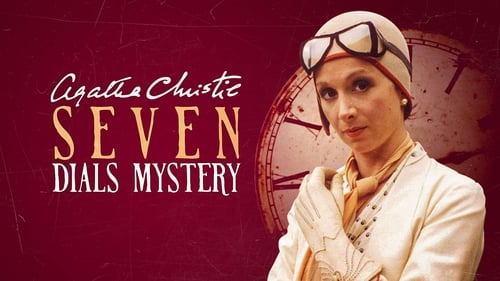scott-palmer2
Fans of Agatha Christie's novels will be pleased with this 1981 TV film, which nearly exactly sticks to the original 1929 written work. A good period atmosphere with nice outdoor filming, as well as good casting also helps.Harry Andrews is as always great, here he plays Superintendent Battle (one of the rare times we see the character on film)and also Sir John Gielgud. Cheryl Campbell is fine as Lady Eileen and James Warwick-soon to appear as Tommy in the Partners in Crime series, is also winning in the role of Jimmy Thesiger. Representing the older generation Terence Alexander, Leslie Sands, and Noel Johnson are excellent, and the younger crowd is well-played by Lucy Gutteridge, John Vine, Robert Longden, and Christopher Scoular.Agatha Christie's house in Devon-Greenway-was used in this production. The period costumes are excellent, as are the tech credits. It is obvious that a lot of care on all fronts went into the making of this production. Most of the same people were responsible for making the TV film Why Didn't They Ask Evans? the previous year.
T Y
Bundle: "I say Jimmy, shall we go sculling with 37 of our closest friends?" --------- Jimmy: "I daresay Bundle, I'd rather be drawn into some international intrigue for the weekend, at our country house."Pre-war Agatha Christie mysteries are an odd dish. Much like the English Patient, they're thinly-veiled envy-pieces in which readers wish they were as glamorous as the gentry. In this case, it's not sufficient that the protagonists be wealthy, landed, titled and surrounded by boatloads of friends, they also need to find themselves at the center of an international cabal (w/o even getting out of bed), who wear clock-face masks, and generally behave like superheros on behalf of Dear Old Britain. It's like a James Bond family reunion.This yarn leaps from the quaint to the absurd, to the improbable, to the over-extended, finally jumping firmly outside the genre boundaries of 'whodunit.' When the over-scaled conclusion finally arrives, somehow it manages to still be unsatisfying and trifling. Christie hasn't figured out the low-effort formula that would keep her up to her ears in cash yet. Regardless, if the plot drew any excitement, it would be fine. But she's way out of her league here and would rarely try anything this far off course again.
tedg
I have an all-encompassing quest to experience films in a lucid, coherent way. Within that are several little projects that have become hypnotic vortices of their own. One of these, in a sort of self-referential way is the quest for the best film of a Christie novel.This comes close in terms of Christiness. That's because it is a pretty faithful rendering of the book. As such, it follows her nice form of introductions. In these novels, it is all a game of defining people that sew into each other. The people come first and we find of course that by the end we have sewn them together incorrectly because of the simple order in which they were introduced.Christie (and others, Sayers) have this game of limited watching. Everything we see is true, but we don't see everything we need to in order to weave a coherent narrative until the end. That's when we revisit many scenes, which we "see again." Its all about seeing, really. And that's especially so when she writes book without her regular detectives. With the detectives, there is some internal sight, some mental perspectives, but with these it is purely about what is seen physically.Here's the interesting part. Movies, and especially these puzzle movies are also about what we see and what we don't. That's the root of the cinematic experience. But Christie didn't write with a cinematic imagination. So the two conventions of visual trickery are close but not the same.That's why I'm so fascinated by films of Christie stories. It is a wonderful cinematic challenge for the filmmaker, and in a way — because all this is collaborative construction — one for the viewer as well.This adventure plays with secrets in three ways (signage, association and "state" secrets) and allows us to confuse them by natural assumptions that prove false. It is clever. As a book it is clever, I mean.As a film, it goes on too long and asks us to accept some rather extreme portrayals. Even with its length and observance of the story, there is a pretty jarring discontinuity between the first part of a large group of young, silly people. We need this large number to justify the eight clocks. But managing so many red herrings in a movie isn't feasible so all the girls are dropped.Ted's Evaluation -- 2 of 3: Has some interesting elements.
grybop
Even hardcore Whodunnit fans will probably be disappointed in this one, a slow, confusing and badly directed tv film, based on an Agatha Christie novel. Cheryl Campbell is sometimes irritating as Lady Brent, while James Warwick is adequately convincing as Jimmy Thesinger. The story is dated and lacks credibility, but this is probably due to the aforementioned poor direction; more interest was shown in recreating the late 30s era (which was achieved, by the way), which resulted in nervous editing and bad acting. Only to pass the time.3



